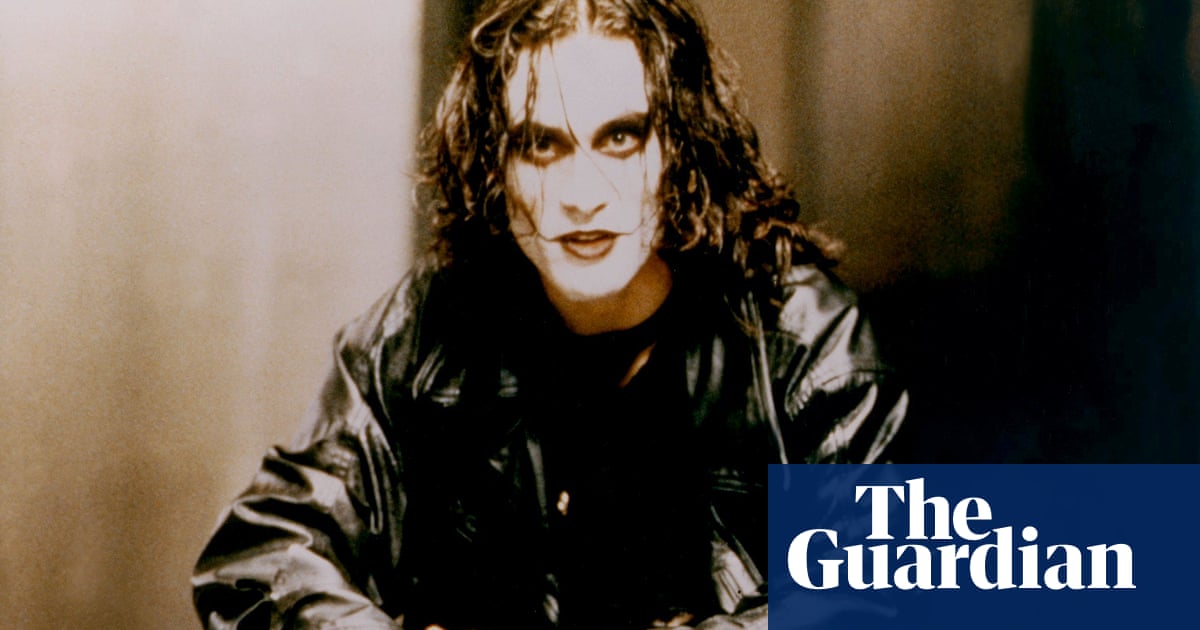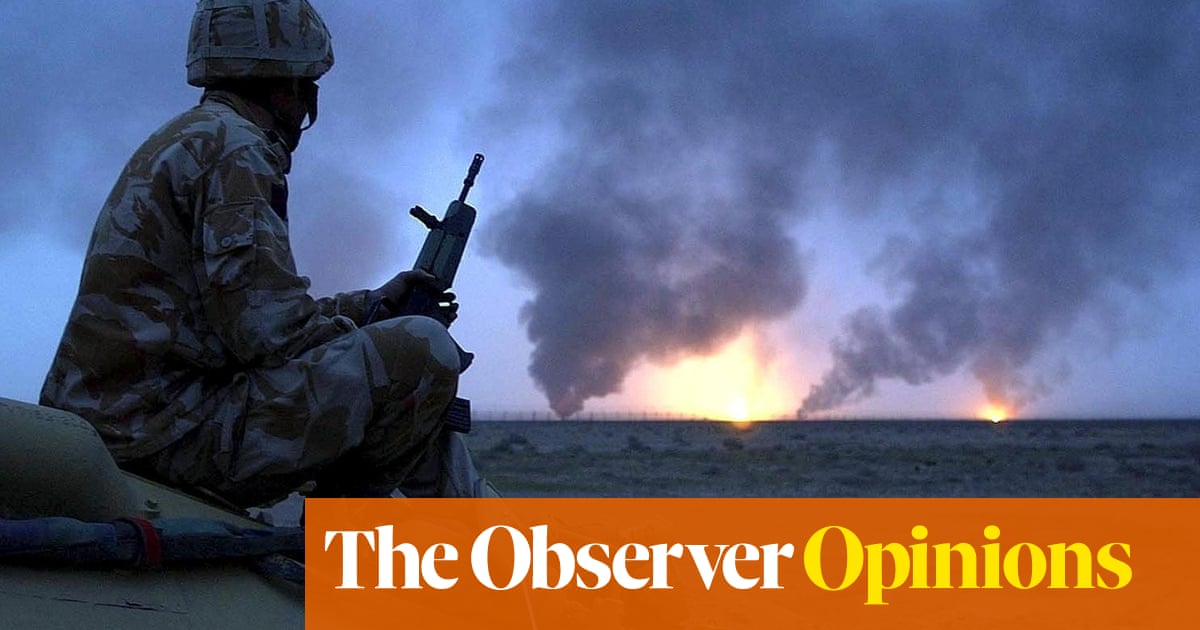
When the actor Vinette Robinson was in her early 20s, she did a trial shift as a waitress at an Italian chain restaurant in central London. She hated it so much that she walked out before the end. “The shouting, the rude customers,” she shudders. “Halfway through the shift I was, like: ‘Get me out of here!’”
Just under two years ago, Robinson – best known for her roles in Sherlock, where she was police sergeant Sally Donovan, and in Doctor Who, in which she played Rosa Parks – was thrown in the deep end once more in an east London kitchen. Admittedly, this time the restaurant was doubling as a film set, with Robinson playing Carly, no-nonsense sous chef to Stephen Graham’s Andy, the alcoholic head chef. But still, the atmosphere made her sweat.
The film is the aptly titled Boiling Point, filmed in one take and set in a buzzy restaurant on the last Friday before Christmas, where Andy is in meltdown, one of the trainee chefs is self-harming, a dish-washer hasn’t shown up and an officious hygiene inspector has knocked two stars off the restaurant’s rating. Meanwhile, Carly is having her own kitchen nightmare as her request for a pay rise has been ignored, despite her spending most of her shifts doing Andy’s job for him and covering up for his mistakes.
Boiling Point is directed by Philip Barantini, a former actor who worked with Graham on Band of Brothers and who made his directing debut last year with the gangster movie Villain. Made on a tiny budget in the stylish Dalston restaurant Jones & Sons, Boiling Point is filmed in one uninterrupted, expertly choreographed take. The effect is one of scorching realism and tension as the behind-the-scenes activities of a restaurant play out in real time.
“Phil wanted to completely immerse you in that world,” Robinson says. “The point of a one-shot, if it’s going to work, is to pull you right in. It shouldn’t be about technical brilliance, because if it’s not serving the story, then who cares?”
Rehearsals were split between the front-of-house actors (waiters, bar staff, diners and an Instagram-obsessed house manager) and the kitchen staff (chefs, junior cooks, porters and dish-washers). Each group rehearsed for just five days, with the kitchen staff accompanied by a real-life chef, Tom Brown, who advised on details such as how to whisk sauces and plate up dishes. After three run-throughs, the plan was to shoot the film twice an evening over four nights. But this was March 2020, so Covid arrived, lockdown was ordered and the shoot was shut down after two days. They managed four takes, and Barantini used the third.
“It was a lot of pressure, which I think worked in our favour as it added to the tension,” Robinson says. Years of working in theatre – she has appeared in Ian Rickson’s Hamlet, Rupert Goold’s Albion and Paradise Lost, and Richard Eyre’s Welcome to Thebes – meant the one-shot aspect didn’t faze her.
“But the lack of rehearsals was a different thing,” she adds, grimacing. “Stephen, brilliant actor as he is, thrives on that chaos, but I’m the kind of person who likes to know what they’re doing.” Robinson ended up hiding crib sheets in the fridge with the sequence of events written down; when the camera panned away the actors would run to the fridge to check what was coming next. Also adding to the seat-of-the-pants atmosphere was the improvised dialogue; the script was essentially a list of bulletpoints. “Even though it was stressful, it was also exciting,” Robinson says. “The collective effort of the cast and crew all having to be that tuned into each other was pretty magic. I’ve never felt that on a set, ever.”
Aside from a few bits of radio, Boiling Point ended up being Robinson’s last job of 2020 – “I’ve never not worked for that long,” she says. Her first post-lockdown role is in the Sky series Extinction, a time-loop thriller also starring I May Destroy You’s Paapa Essiedu, which is to air in spring. Robinson isn’t allowed to say much at this stage: “I have to be careful about giving things away, but there’s an organisation that is … well, the question is: is it a force of good or is it not? But their weapon is time travel. That’s really all I can tell you – sorry, that’s really crap.”
The daughter of a builder father and an office-worker mother, Robinson grew up in Bradford. Her parents were astonished when their daughter said she wanted to be an actor: “I come from a very working-class background that wasn’t creative at all,” she explains. It did not cross anyone’s mind to do anything like that.” Her lightbulb moment arrived in an English class in middle school, when she was asked to perform a poem alongside a friend; their teacher was so impressed she entered them into a local competition. “We won the category and I experienced applause for the first time. I thought: ‘Yes please, I’ll have more of this.’”
She joined the school drama club and began auditioning locally: “My first job was as a teenage prostitute on northern telly.” One of her earliest auditions, aged 13, was for Queen Amidala in Star Wars: The Phantom Menace; two decades later, she finally made it into a Star Wars film, appearing very briefly as a pilot who receives the film series’s first same-sex kiss in The Rise of Skywalker. That she auditioned for Amidala (the role later went to Natalie Portman) has sent her Star Wars-loving fans a bit loopy, but Robinson lets out a little sigh when I bring it up. She points out that hundreds of other girls were auditioned at the same time – and in any case, she bungled the audition, having “tried to talk properly, very badly” in an attempt to hide her Yorkshire accent.
At 18, she went to drama school after getting a bursary to Webber Douglas Academy of Dramatic Art, which covered her fees and gave her a small living allowance. She was then put forward for the Laurence Olivier bursary and got that, too. “A lot of these kinds of schemes don’t exist any more, so I wouldn’t be able to go to drama school today,” she says. “The career I’ve had would simply not have happened.”
Since then, her ascent has been pretty smooth, having moved from appearances in long-running series such as Casualty, Doctors and Waterloo Road, to meatier roles in Vera, The A Word, Sherlock and more. Her casting in 2019 as Bob Cratchit’s wife, Emily, in the BBC’s adaptation of A Christmas Carol prompted ire on social media from viewers under the erroneous impression that a mixed-race family wouldn’t have existed in 19th-century London. Robinson knew as soon as she was cast that this would happen. “When a man started tweeting at me [when the show went out], at first I thought: ‘OK, I’ll talk to you, because maybe it’s ignorance,’ but I should have known better. He just wanted to have an argument about the fact that I shouldn’t exist, and how dare I be taking up space in the world. But social media vocalises a very loud minority. I expected comments but I don’t think the majority of people cared.”
For her, the greatest moments in Boiling Point are when the film highlights the microaggressions that people of colour endure. The film shows a young Black waitress being treated aggressively by a customer who, moments before, had been sweetness and light to a white waitress. “It can sometimes feel like, if someone’s not shouting racial slurs on the street, people think that everything’s getting better,” says Robinson. “But [racism] is more insidious than that. So a waitress can be spoken to rudely, and nothing specific is said, but it’s about the attitudes behind it. And you just take it, absorb it and get on with your day. So that scene rang true to me – it is heartbreaking in its subtlety.”
Robinson is delighted to have recently won Best Supporting Actress at the British Independent Film Awards, one of four wins for Boiling Point, but she still finds watching herself on screen excruciating. “The first time you see the finished work, it’s like you’re being assaulted by yourself,” she says. “My job is great, but – honestly – I wouldn’t wish that on anyone.”












